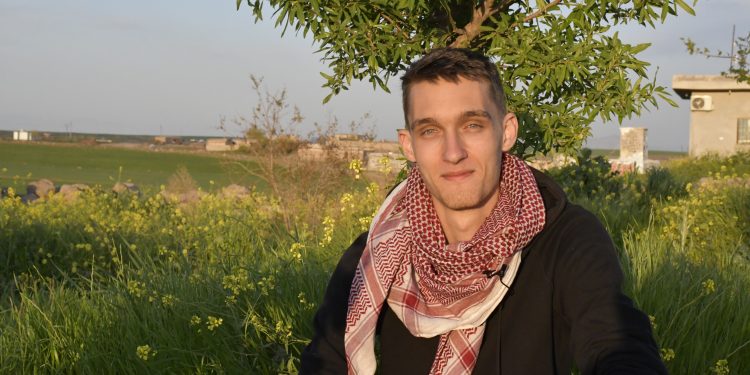NEWS CENTER – Some time ago internationalist work brigades were called to Rojava to take part in the revolutionary processes in north-east Syria and, above all, to get to know them. There was great interest in the call and for some time there has been a delegation in north-east Syria working on a research project. You research the role of youth in the revolution in Rojava and Kurdistan.
One of the participants in the delegation is the German internationalist Bager Serêkaniyê. He spoke to our news agency about the research project, what they have done so far and how it relates to European youth and European left, which is largely made up of youth.
Bager Serêkaniyê told our news agency the following:
“I’ve been in Rojava for a month and a half now. I am here primarily to do a research project which is primarily concerned with youth in the revolution. Especially in relation to Rojava but not only because this revolution cannot be seen separately from the other parts of Kurdistan and also in the other parts of Kurdistan the youth in the revolutionary construction and the uprisings that have taken place in recent decades have played a very large part had. And the Kurdish movement itself also emerged from a basically group of young people.
We have already visited various cities here in Rojava and talked to young people, talked about their work, talked to them about their perspectives and it is very inspiring to see the conditions under which the young people here do this very difficult work, but with what fighting spirit and with what vigor, with what motivation she does this work.
And I also see that young people in Europe can really learn something from this. So you can learn a lot from the fighting spirit, from the willingness to make sacrifices that you see here. Also from the organizational ways that are lived here, from the ways of working, working together in a collective, from the way how community is lived in the organization and so on. That can really be a role model for Europe. And I also think that many young people in Europe are looking for exactly these answers, also because it was me.
If you look at the European left, there are a lot of young people and it is mainly young people who make up this European left, but I also see that the European left, the young European left, has great problems organizing itself, making broad alliances close, build wide movements and conduct serious work. That’s exactly where I see the strength of the Kurdish movement, to give the Kurdish youth movement specific answers to the questions that exist in Europe.”




